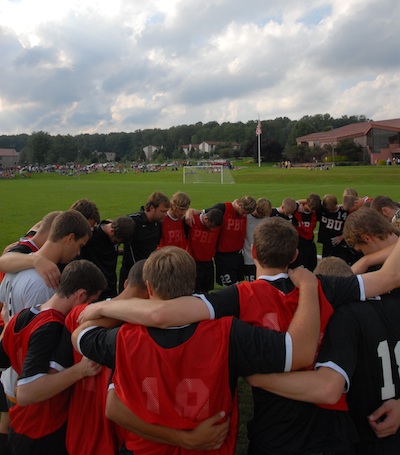[dropcap3]T[/dropcap3]he first time I met Newton Conant, I could tell there was something unique about him. Although he was nearly 80 years old and 61 years my senior, he took a special interest in my life and my walk with God. He taught me about the supreme importance of heart devotion to Christ and demonstrated this from his own life. He pastored a church in inner city Camden, NJ for over 40 years. At the age of 70, he went to Kenya to teach in a seminary. When he was 93 he followed God’s call to go to Russia to train pastors. For 97 years, his life was truly devoted to Christ and serving Him. When I think of a disciple, I think of Newton Conant.
In the New Testament, the word translated “disciple” by most English versions is μαθητής. The word disciple may conjure up connotations of bearded men wearing togas and sandals, following Jesus around dusty roads. Beyond this image the meaning of disciple may be somewhat vague to most Christians. But since Jesus’ last words to his followers were, “Go therefore and make disciples of all nations” (Mt. 28:19), it is vitally important that we all understand the meaning of “disciple” and make it an urgent priority in our lives.
μαθητής in its basic form may denote a person who directs his mind to something. In the Greek world, the word could imply a relationship in which the student is directly under the authority and tutelage of his teacher as an apprentice. This master-disciple relationship was especially common in philosophical culture and in religious settings. In the Gospels, the word is used often of those who attached themselves to Jesus as their teacher (Mt. 5:1, 8:23; Lk. 11:1, 14:26) It implies a personal attachment which shapes the whole life of the one called disciple. Use of the word in the Gospels breaks off after the prayer in Gethsemane (Lk. 22:45) and resumes after Acts 6:1. In every occurrence but two in the book of Acts, the word is used to refer not to personal disciples of Jesus, but rather to those who truly believe in Christ and radically follow him (Acts 6:7, 9:1, 11:26, 13:52, 20:1). The emphasis is on whole-hearted commitment, obedience and willingness to suffer like Christ. In the early church, the use of disciple emphasized those who were so serious about their relationship with Christ, that they were willing to give all to follow him. In fact, Ignatius went so far as to say that only a martyr could be considered a true disciple of Christ (Kittle 416-461).

Disciples in the Church
The word μαθητής never appears outside the Gospels and Acts. However, the epistles include examples of those who followed Christ in commitment, obedience, and sacrifice. Paul is a classic example of someone who had a desire to live his life “full-out” for Christ. “It is my eager expectation and hope that I will not be at all ashamed, but that with full courage now as always Christ will be honored in my body, whether by life or by death. For to me to live is Christ, and to die is gain” (Phil. 1:20-21).
We intentionally invest in others to teach them to imitate the life and teachings of Jesus so they, in turn, can disciple others. In Paul’s last days on earth he wrote to his disciple, Timothy. He said, “And what you have heard from me in the presence of many witnesses entrust to faithful men who will be able to teach others also” (2 Tim. 2:2).
“Life-on-Life” Transformation
Discipleship is a process in which the master invests his time and energy for the development of the disciple. Some have described the process as “life on life.” The disciple was trained to do more than merely memorize facts or repeat doctrine. The disciple closely observed and imitated the lifestyle of the master so that he could live like the master. The disciple’s life was transformed by putting the teaching of the master into practice and living it out in every area and aspect of life. As time is spent together, more is caught than is taught. The deepest values, beliefs, and ideas about how the world operates are incrementally transferred from master to disciple by time spent in one another’s presence, by discussing ideas, and by living life together. Discipleship is not an event, but a process that leads to Christ-likeness.
[framed_box]Matt McAlack, Ph.D., is the Director of the Youth Ministries Programs in the School of Bible and Ministry. He has a Th.M from Dallas Theological Seminary. Matt has been on faculty at PBU since 1995 and has served as the Youth Pastor and an elder at New Hope Community Church in New Hope, PA, for eight years.
[/framed_box]
References
Kittel, Gerhard, and Geoffrey William Bromiley, and Gerhard Friedrich. Theological Dictionary of the New Testament. Grand Rapids, MI: Eerdmans, 1964.
Scripture passages taken from the English Standard Version.